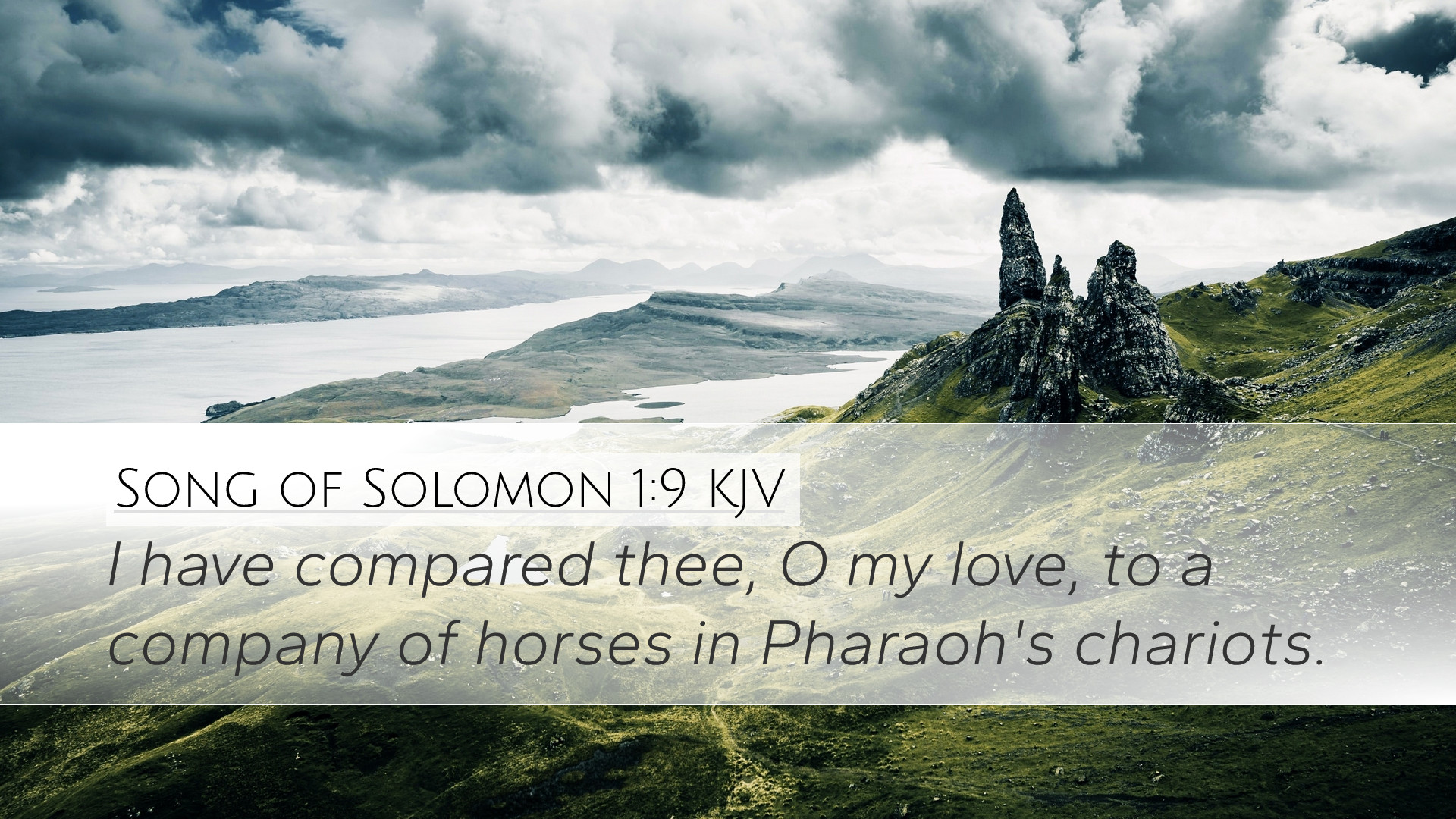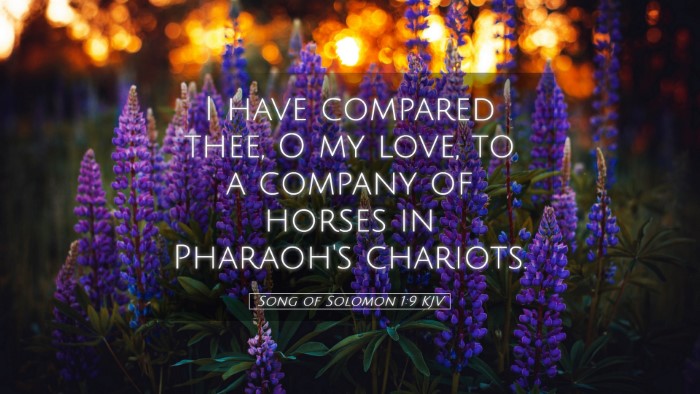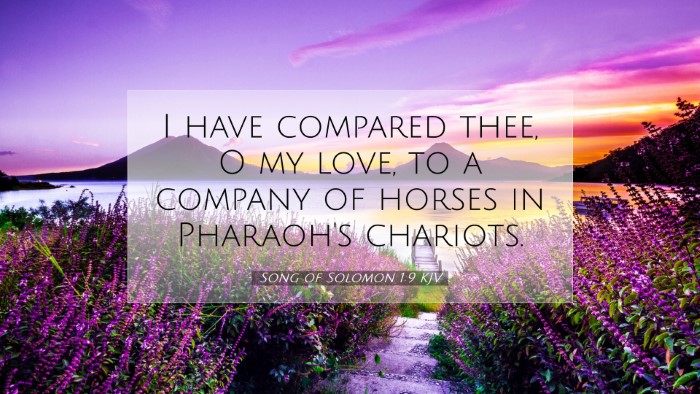Commentary on Song of Solomon 1:9
Verse: "I have compared thee, O my love, to a company of horses in Pharaoh's chariots."
This verse from the Song of Solomon employs rich imagery and metaphor to express the beauty and value of the beloved. The comparison to horses in Pharaoh's chariots is significant, revealing layers of meaning that are essential for pastoral teaching, theological study, and academic exploration.
Contextual Understanding
The Song of Solomon, also known as the Song of Songs, is traditionally attributed to King Solomon and is characterized by its poetic and romantic language. This book explores the themes of love, beauty, desire, and intimacy within the context of a mutual relationship. Understanding the cultural and historical background of this text enriches its interpretation.
Analysis of the Imagery
In this verse, the speaker—often understood to be the Shulammite woman—makes a bold and striking comparison. Let us break down the elements of this imagery.
- Horses: Horses were symbols of strength, beauty, and nobility in the ancient Near East. In the context of Pharaoh's chariots, they represent the highest standard of wealth and power.
- Chariots: These vehicles were associated with royalty, warfare, and procession. The mention of Pharaoh ties the imagery to Egyptian grandeur and might.
- Comparison of Love: By likening her beloved to a company of horses, the speaker elevates her love to a position of honored strength and vitality, thus suggesting that her love is both powerful and valuable.
Theological Implications
From a theological perspective, this verse can be seen to reflect the nature of God's love for His people. Just as the horses are majestic and powerful, so too is the love that God expresses towards His creation. This parallel encourages believers to think about how they understand divine love as both intimate and majestic.
Commentaries by Notable Theologians
Matthew Henry: Henry emphasizes the purity and worthiness of the love described in the Song of Solomon. He states that such a love is not only enchanting but is also to be cherished and revered. In comparing the beloved to the horses, he highlights the notion that true love stands apart from earthly distractions and stands worthy of admiration.
Adam Clarke: Clarke remarks on the significance of the comparison in terms of beauty and dignity. He notes that the reference to Pharaoh’s chariots indicates a love that is not commonplace, but rather one that is royal and exceptional. Clarke suggests this serves as an encouragement for the reader to aspire to a love that reflects these qualities, embodying both strength and elegance in their relationships.
Albert Barnes: Barnes points out that the emphasis on "a company of horses" speaks to abundance and richness. He interprets the verse as an affirmation of the beloved’s capabilities and strength, emphasizing that just as the horses are necessary for the chariot's function, so too is the beloved indispensable in the relationship, enriching the experience of love.
Pastoral Applications
For pastors and leaders, this verse presents an excellent opportunity to explore relational dynamics within congregations. Just as the beloved is esteemed and cherished, so must church members be encouraged to view their relationships—not only in romantic contexts but within community—as opportunities to reflect genuine love and devotion.
- Encouragement in Relationships: Highlight the necessity of recognizing and valuing the unique traits and contributions each person brings into relationships.
- Symbolism of Strength: Discuss how mutual strength in relationships, akin to the horses in the chariot, can lead to overcoming challenges together.
- Appreciation of Beauty: Encourage congregants to find beauty and goodness in one another, reflecting the admiration expressed in the love song.
Concluding Thoughts
In summary, Song of Solomon 1:9 offers a rich tapestry of imagery that speaks not only to romantic love but also to the broader themes of beauty, strength, and the divine nature of love. Through the insights drawn from respected biblical commentaries, readers can grow in their appreciation of the complexities of love as portrayed in scripture and apply these lessons meaningfully in various contexts, fostering deeper connections and understanding.
As we contemplate this verse, let us be reminded of the sincerity and honor in our affections, striving to reflect the virtues embedded within this poetic expression of love.


